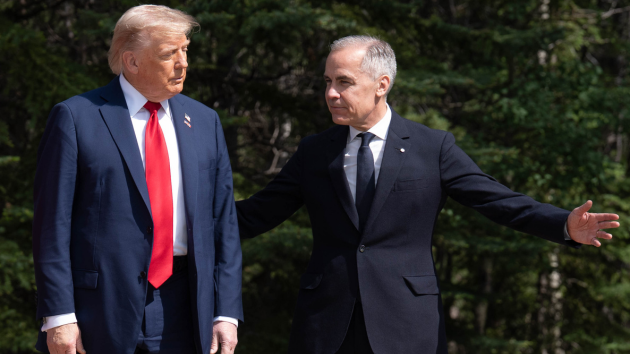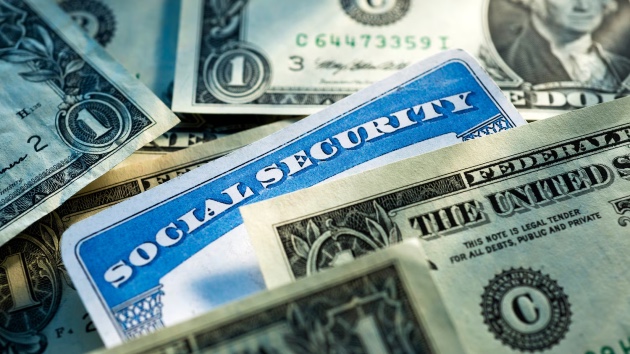What caused the WeWork bankruptcy, and why does it matter?
Written by ABC Audio ALL RIGHTS RESERVED on November 7, 2023

(NEW YORK) — WeWork, the office-sharing company that experienced a dazzling rise and sudden decline that came to symbolize the excesses of business startup culture, filed for bankruptcy on Monday.
In 2019, the company was valued at $47 billion. By last week, that figure had plummeted to $45 million, with shares of WeWork’s stock falling more than 98% since the beginning of the year.
Creditors holding 92% of the company’s secured debt agreed on a restructuring plan that would include cutting back its portfolio of office leases, WeWork said in a statement on Monday.
“Now is the time for us to pull the future forward by aggressively addressing our legacy leases and dramatically improving our balance sheet,” WeWork CEO David Tolley said in the statement.
Popularized by a charismatic co-founder and fueled by an era of cheap borrowing, WeWork expanded the old-fashioned business of commercial real estate into a vision of transforming the way people work, replete with chic offices offering free beer on tap.
The company met its undoing, however, when a debt-fueled spending spree on leasing office space ran up against insufficient demand from businesses and freelancers, experts told ABC News. The COVID-19 pandemic, which forced many office employees worldwide to work from home, only made things worse.
Here’s what caused the WeWork bankruptcy, and what its implications could be.
What is WeWork’s business model?
WeWork’s business model rested on the proposition that the company could lease and refurbish office space, and then rent the properties to companies and freelancers at marked-up rates, Samuel Rosen, a professor of finance at Temple University’s Fox School of Business, told ABC News.
“WeWork is kind of a middleman,” Rosen said. “They take out a giant portfolio of real estate leases, rent it out and make a profit.”
The company currently offers office space at 660 currently open or soon-to-come locations in 119 cities worldwide, according to its website.
As part of its appeal to tenants, WeWork gained a reputation for lavish spending on stylishly designed spaces with worker amenities such as free kombucha and beer, hammocks, and rock-climbing walls.
What’s behind WeWork’s collapse?
WeWork took on tens of billions of dollars in debt to amass its large portfolio of leased office space. As of 2021, Japanese venture firm SoftBank had invested $17 billion in the company, Bloomberg reported.
However, demand for shared office space never reached the level necessary to match the large acquisition WeWork made. That lack of tenants in turn meant WeWork couldn’t offset those losses or make their sizable rent payments on the office space they’d leased, Erik Gordon, a business professor at the University of Michigan who has studied WeWork, told ABC News.
“They mistakenly thought that signing leases gave them tons of assets,” Gordon said. “There’s tons of empty office space, so having nailed down office space made no sense.”
Since WeWork had taken on debt to fund its lease portfolio, the underperformance gradually pushed the company into bankruptcy.
“It’s the combination of a business model that wasn’t as profitable as originally projected, and a lot of debt,” Rosen said.
What are the implications of WeWork’s bankruptcy?
The bankruptcy of WeWork offers a cautionary tale regarding a period of low interest rates in the 2000s and 2010s that spurred a flood of investment into startups as investors sought novel ventures that could deliver high returns, Gordon said.
When borrowing expenses are low, he added, investors bring less scrutiny to where they put their money.
“It’s a testament to how damaging near-zero interest rates are to the market mechanisms that allocate capital,” Gordon said. “Near-zero interest rates make capital get allocated stupidly.”
Since last year, however, the Federal Reserve has raised interest rates at the fastest pace in more than two decades, making borrowing more expensive for businesses and consumers alike.
Christopher Kayes, a professor of management at the George Washington University School of Business, said in a statement: “The fall of WeWork signals that the excesses of the last decades are being put to rest.”
“The cheap money that enabled the financing of companies like WeWork to thrive was the match in the powder keg,” Kayes added.
Copyright © 2023, ABC Audio. All rights reserved.

 KVSP
KVSP 




